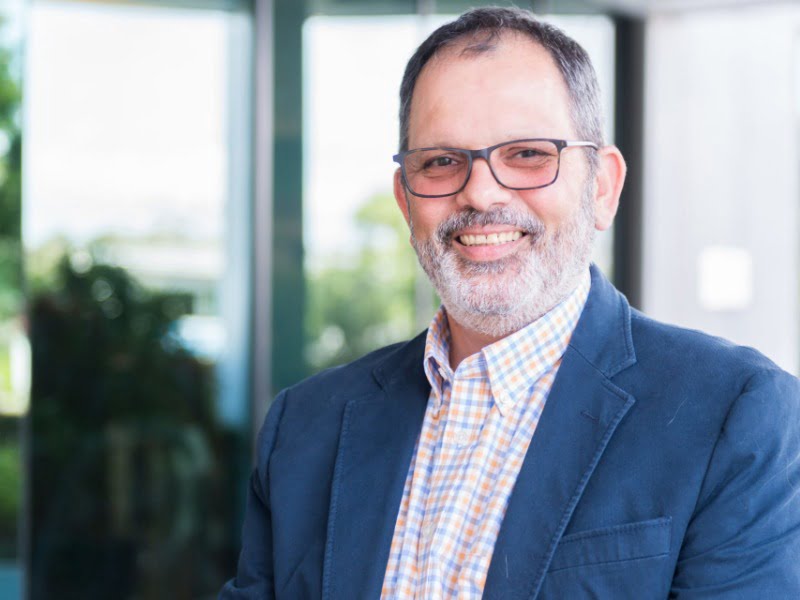Australia is weathering the devastating effects of COVID-19 relatively well, but it is clear that even with a potential vaccine on the horizon, we should be prepared for what is likely to be a generational impact on the global economy.
Given such international uncertainty ahead, how do we try to rebuild the Australian economy from the turbulence of 2020?
It was pleasing to see the federal government recognise the critical role of manufacturing and medical products identified as one of its National Manufacturing Priorities.
A clear national strategy is welcomed and there are some policies and concessions that will undoubtedly help the manufacturing sector.

But if the government wants to accelerate the impact of its much-needed intervention it should consider re-weighting its manufacturing strategy funding and place a greater emphasis on reducing red tape.
The single greatest priority for Australian businesses to compete on a global scale should be the modernisation of our manufacturing base and supply chains through the adoption and growth of industry 4.0 technologies.
Contrast the some $160 million set aside for modernisation and supply chain resilience with the $1.3 billion allocated to the Modern Manufacturing Initiative to develop ‘roadmaps’ for each sector.
Australia has never suffered from the ability to generate ideas, but making them globally competitive and therefore commercially viable is our greatest stumbling block.
The government’s investment priority seems upside down. This is compounded by the likelihood that the government’s ability to pick sector winners will be problematic.
Case in point is the mishmash of organisations and entities that is the current national ‘innovation ecosystem’ funding lottery.
Instead, the manufacturing sector urgently needs greater clarity and simplicity of purpose for how to engage with funding mechanisms and realise the propagation of digital technologies both vertically and at scale to achieve commercialisation.
Other markets have recognised this and responded accordingly. The UK’s Catapults, Germany’s Fraunhofer-Gesellschaft and the US’ Manufacturing Institutes all demonstrate practical models to address this very challenge and, most importantly, are funded appropriately.
It is worth noting these same markets are among the growing number around the world to have also implemented frameworks that secure tax incentives for manufacturing activities linked to locally-based intellectual property.
As an advanced manufacturing business committed to championing local innovation, Cook Medical Australia has been a long-time advocate for Australia to embrace such an arrangement.
Unfortunately, it is now an exercise in futility to consider how such initiatives could have provided the turbo-boost our economy so desperately needs heading into 2021.
Like the government’s manufacturing strategy, recent proposed changes to industrial relations laws are well intentioned but could be bolstered with further reforms to help Australian businesses operate in the new ‘Covid-normal’ environment.
Red tape-heavy areas the government should reconsider as a priority are workers’ compensation and Fringe Benefit Tax (FBT).
So many people are working from home and are likely to continue to do so, at least partially, that flexible hours workers’ compensation laws need to be reviewed, urgently.
Preventable injuries and deaths are more likely to occur in the home than anywhere else, making workers’ compensation a ticking time bomb for businesses.
FBT laws also need to be reviewed in light of employers looking to invest, more than ever before, in employee health and wellbeing.
For example, provision of a gym at work is an allowable deduction free of FBT, but a gym allowance to help ensure the health of the same employees is subject to FBT. A second example is FBT on company-sponsored healthcare.
Cook Medical has always prided itself on its commitment to the health and wellbeing of our employees and the pandemic has amplified that aspect of our culture. And, like all export-reliant businesses we have faced challenges in our response to COVD-19.
We expect to overcome some issues relatively quickly while other adjustments to the way we conduct business will be more profound.
There is no escaping the reality of the pandemic’s impact on the bottom line, but we have been relatively fortunate in the sense that it has, to date, been significantly less than originally feared.
For example, export freight costs have increased significantly and there has been a major rise in the costs of personal protective equipment which, as a standard requirement, has not gone unnoticed at our clean zone manufacturing site in Queensland.
And while supply chain disruption has presented a myriad of challenges, we haven’t missed the delivery of any urgent products to where they were needed.
Perhaps the most apparent alteration is how the pandemic has challenged pre-conceived, long-held notions of the workplace, and our work/life balance has become more important than ever.
Our employees’ wellbeing has been at the heart of our response and we have begun to implement operational changes which will make our business more adaptable, resilient and better connected as we move towards a brighter future.
Like many businesses, we have adapted the delivery of some of our services. For example, we are using online platforms to conduct training for healthcare professionals on our products and we expect this will change the way we deliver these services across Australia and beyond.
Covid-19 has made us focused and presented fresh issues for us to overcome. But it has also given us a glimpse of a new, productive way forward with a greater emphasis on our collective health and wellbeing.
If businesses and governments can innovate and adapt then we can approach the post-pandemic world with confidence.
Dr Samih Nabulsi was appointed to lead Cook Medical Australia in 2016 and has over 20 years’ experience in the medical device industry in Australia and globally. Samih holds a PhD in engineering and has been at the forefront in the development of innovative medical solutions and technologies working with in-house R&D teams as well as through collaborations with industry and university research partners.
This story originally appeared in @AuManufacturing. You can subscribe to its newsletter here.
The post Policy re-set needed to boost manufacturing appeared first on InnovationAus.
This post was originally published on InnovationAus.